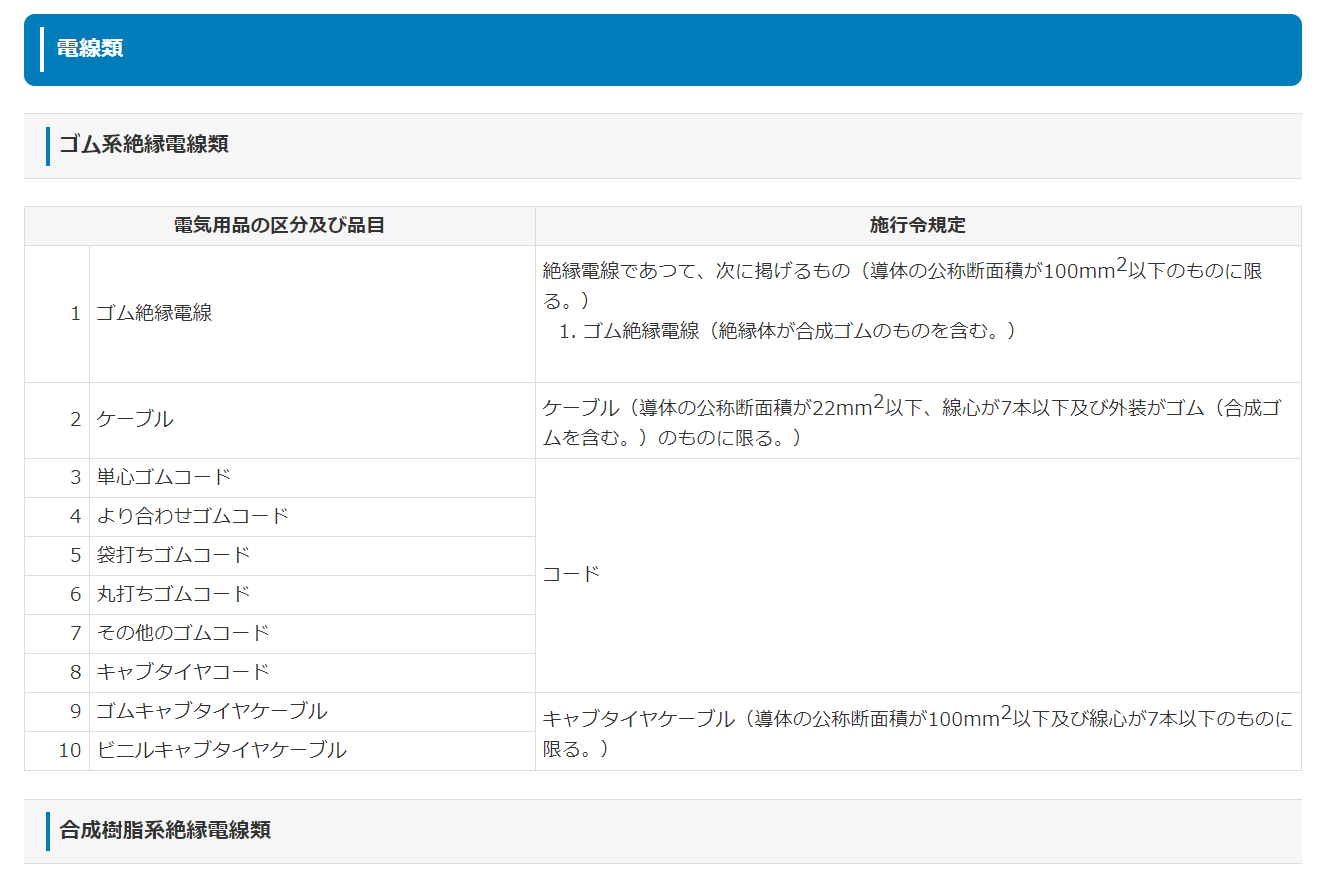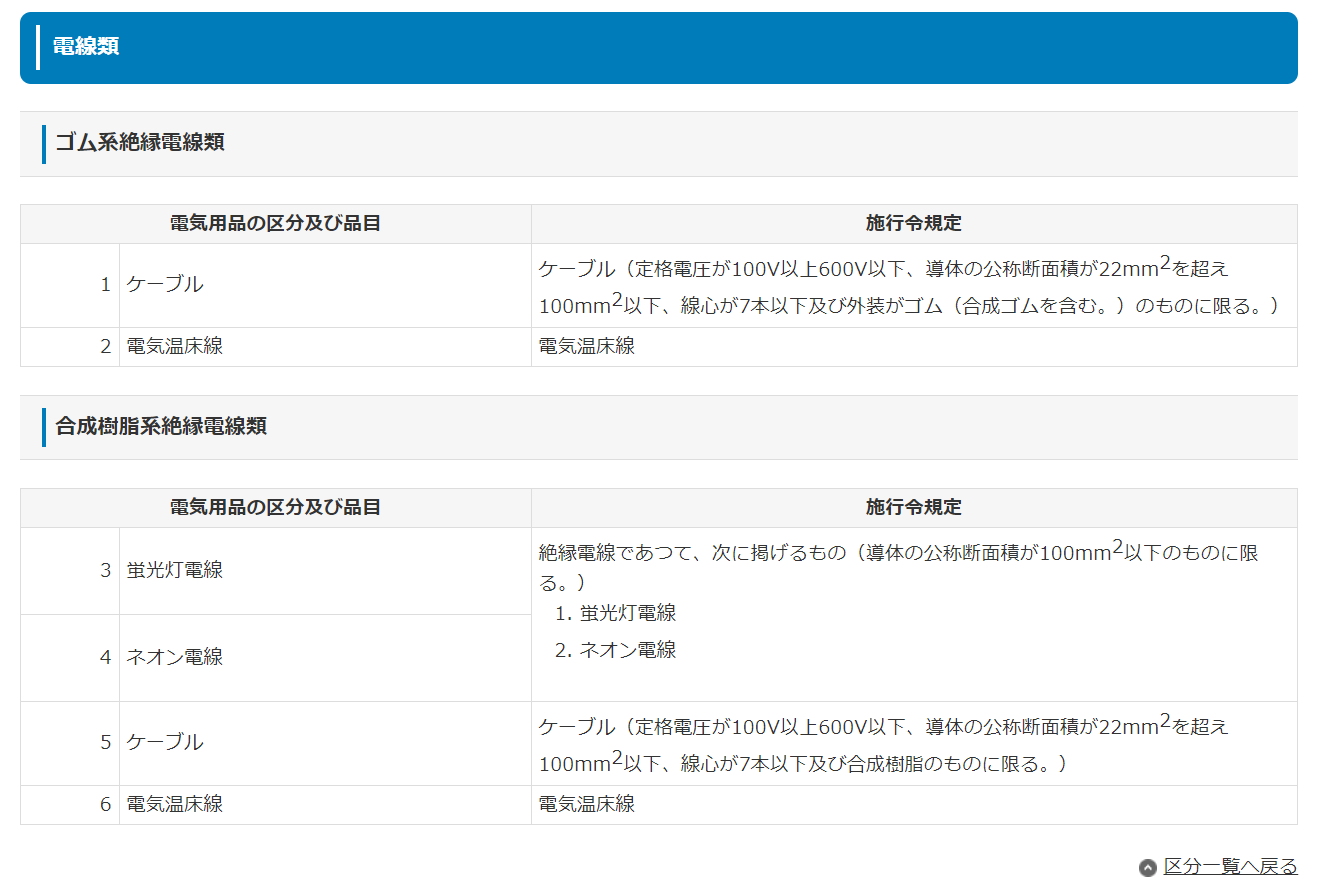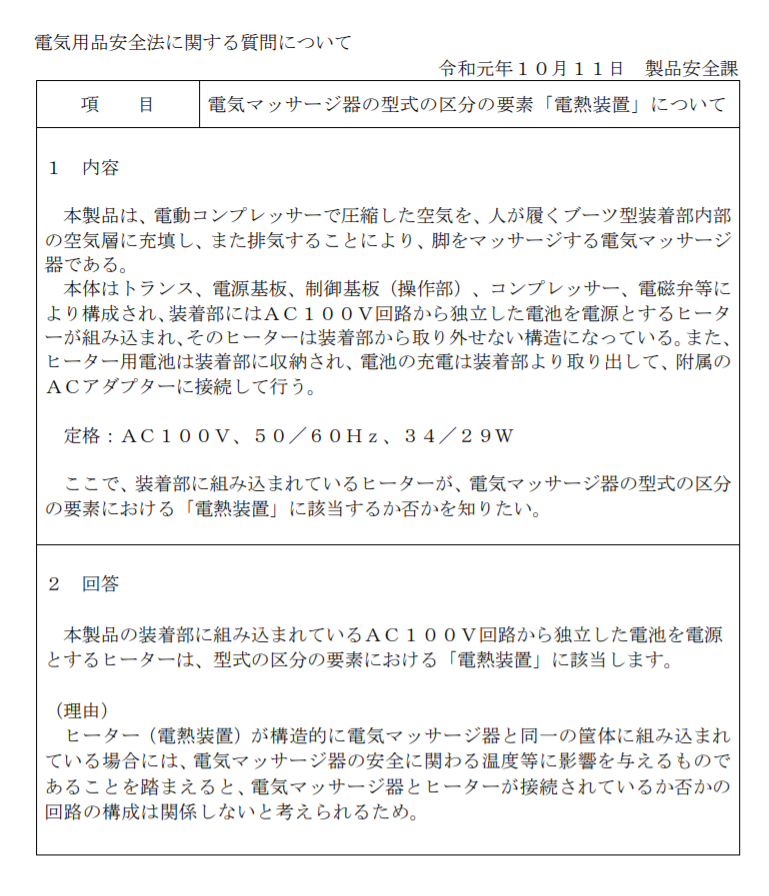To be honest, I'm saved to be told that it is not eligible for PSE, is it okay to sell electrical appliances without the PSE mark?

Hello. It is the moat of the caretaker.
Due to our business background, there are many inquiries from customers who ask, "Are these electrical appliances and materials subject to PSE?" As those of you who have been watching this owned media will know, for example, things with USB power supply are not subject to PSE.
To be honest, I try not to answer those questions. Here's why:
(1) If it is a story of this level, you can find out immediately if you look it up yourself
(2) Basically, you are consulted on the premise that you do not wish to be eligible for PSE
Of course, certification is something that costs a certain amount of money, so basically the real intention of the business operator is that they do not want to pay the certification fee, but our real intention is that we can not spend time on it.
I can understand that no one wants to authenticate (= do not want to pay the cost), but at the stage of consulting with our company, the story will not proceed unless you are determined to do the certification.
If you spend time responding to such things, you will neglect support for those who are actually working on or preparing for certification.
However, on the other hand, although we intend to do PSE certification, we naturally respond to consultations about what kind of test contents will be in the first place and how much it will cost. That's because you can't get an estimate without checking here.
In that case, we will accept 30,000 yen ~ 50,000 yen as an advance payment as an estimate preparation cost, and when it is decided that the estimate is completed and certified, we will deduct it from the overall amount and refund it.
I have explained our business flow while being a snake, but I will return to the main topic, and there is a pattern that it turns out that it is not subject to PSE while investigating the certification quotation of the product requested by the customer.
This time, I would like to explain the background of such a case and the good and subsequent measures that can be taken.
Contents
- 1 Electrical appliances and supplies other than 116 items of specified electrical appliances and 341 items other than specified electrical appliances are not pse
- 2 In the first place, mobile batteries were not eligible for PSE at first
- 3 Two responses when it is judged that electrical appliances and materials are not subject to PSE
- 4 It is not known whether the PSE will continue permanently thereafter, so periodic confirmation is required
Electrical appliances and supplies other than 116 items of specified electrical appliances and 341 items other than specified electrical appliances are not pse
The Ministry of Economy, Trade and Industry's PSE (Electrical Appliance and Material Safety Act) page contains 116 specific electrical appliances and supplies and 341 items other than specified electrical appliances and supplies for each classification of electrical appliances and supplies, along with the following words.
"The range of electrical appliances and materials is subject to each category and item (upper limit of rated power consumption, etc.).
Part of specified electrical appliances and equipment
List of divisionsElectric wires, fuses, wiring equipment, current limiters, small single-phase transformers, electric heaters, electric power application machinery and equipment, electronic application machinery and equipment, electric machinery and equipment for alternating current, portable generators
Some other than specified electrical appliances
List of divisions
Electric wires, conduits and accessories, fuses, wiring equipment, small single-phase transformers, small AC electric motors, electric heaters, electric power applied machinery and equipment, light sources and light source applied machinery and equipment, electronic application machinery and equipment, alternating electrical machinery and equipment, lithium ion storage batteries
Citation: Ministry of Economy, Trade and Industry Website_Electrical Appliance and Material Safety Act
I feel that there are quite a lot of target products, but what is common in both cases other than specific electrical appliances and materials is that basically both supply power by AC. In other words, it is used by plugging an outlet (AC cable) into the power outlet.
Alternatively, a machine for drawing power (electricity) from an electric wire, such as a power breaker (circuit breaker), is eligible.
Basically, PSE is a law that targets "electrical appliances and materials" that obtain power through AC, and the above target items are basically composed of such products.
You may feel a sense of humor at such a time, but even if you say "electrical appliances", there are some things that are used without plugging in the power outlet, and in fact there is a high possibility that such things are not subject to PSE.
Typical examples not covered by PSE include those that charge and supply power with USB or cigar sockets, those that use dry batteries, and those that use AC adapters.
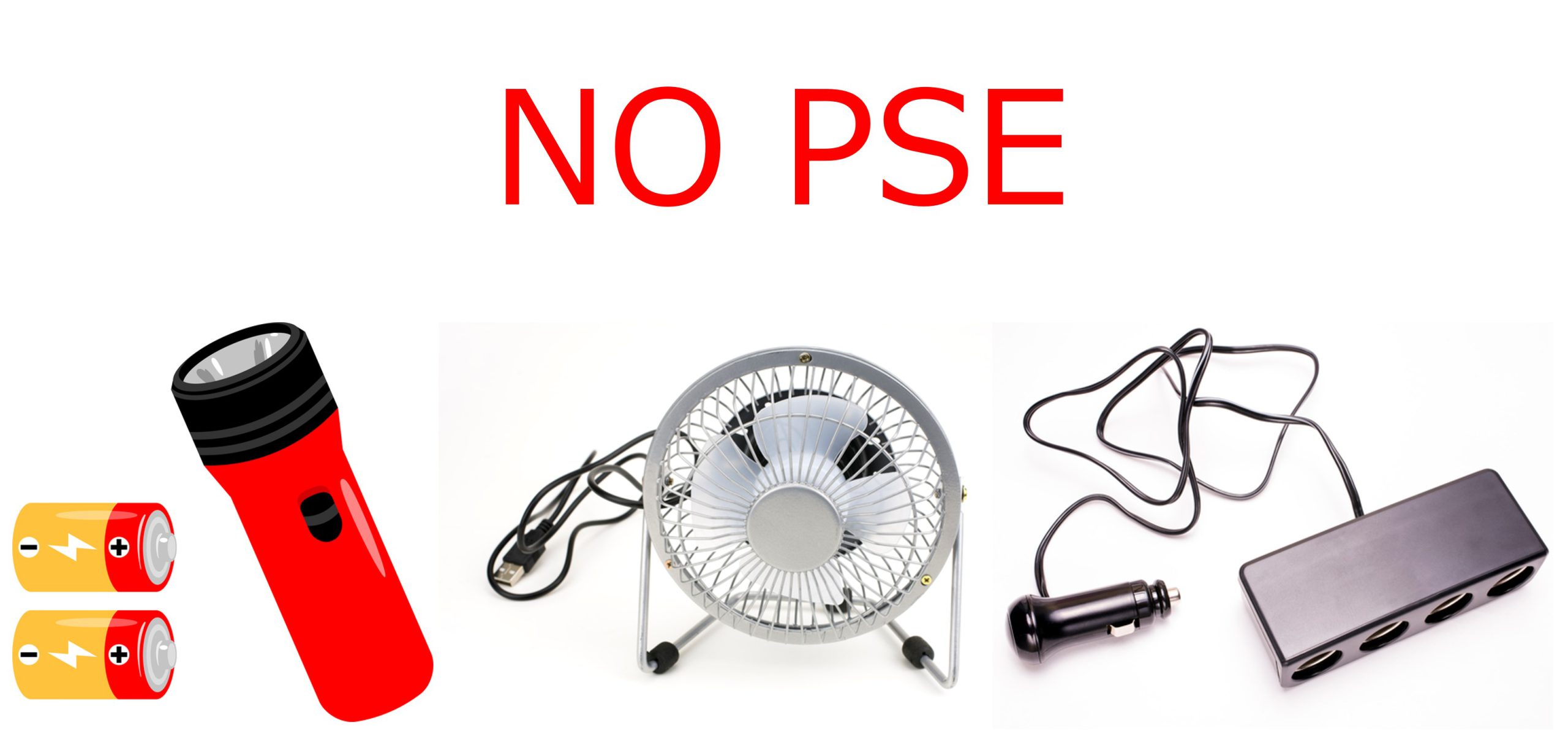
I will write briefly because this side deviates a little from the main topic, but the main reason why USB and dry batteries are not covered is basically because the voltage (power consumption) is too low and the possibility of accidents is low, so to speak, it is treated as a toy and is not subject to PSE. In other words, it is treated as direct current.
On the other hand, for electrical appliances and materials that use AC adapters, the product itself is not subject to PSE because the power outlet does not extend from the main unit = the main unit is not AC, but the AC adapter used for power supply falls under Specified Electrical Appliance and Material No. 115 as a "DC power supply device".
In addition, the classification table of PSE products is prepared based on existing electrical appliances and materials, and for example, if a new type of electrical appliance material that has never been seen or imagined before is developed, it is either applied (forcibly) to one of the existing items or excluded from PSE.
Recently, there has been a view that portable storage batteries that generate power sources by solar power generation are not subject to PSE.
The Ministry of Economy, Trade and Industry's respective views on whether or not each product is eligible for PSE are posted on the following page. I don't think that the electrical appliances and materials you are dealing with will fit perfectly, but I think it will be interesting to take a look at it from time to time.
About the element of the classification of electric massager type "electric heating device" (answer example)
In the first place, mobile batteries were not eligible for PSE at first
Recently, there is a mobile battery that has become a hot topic of fire accidents one after another, but it was in February 2019 that it became subject to PSE.
In the first place, mobile batteries are powered by direct current, so in principle it seems that they are not subject to PSE, but the Ministry of Economy, Trade and Industry stipulates that portable generators and storage batteries are subject to PSE.
As mentioned above, in view of the high number of accidents involving mobile batteries (lithium-ion batteries) and the dramatic expansion of demand in the future, the Ministry of Economy, Trade and Industry has decided to start regulating PSE.
In this way, I think it is good to remember that the judgment of whether or not to be subject to PSE is based on the policy judgment of the Ministry of Economy, Trade and Industry.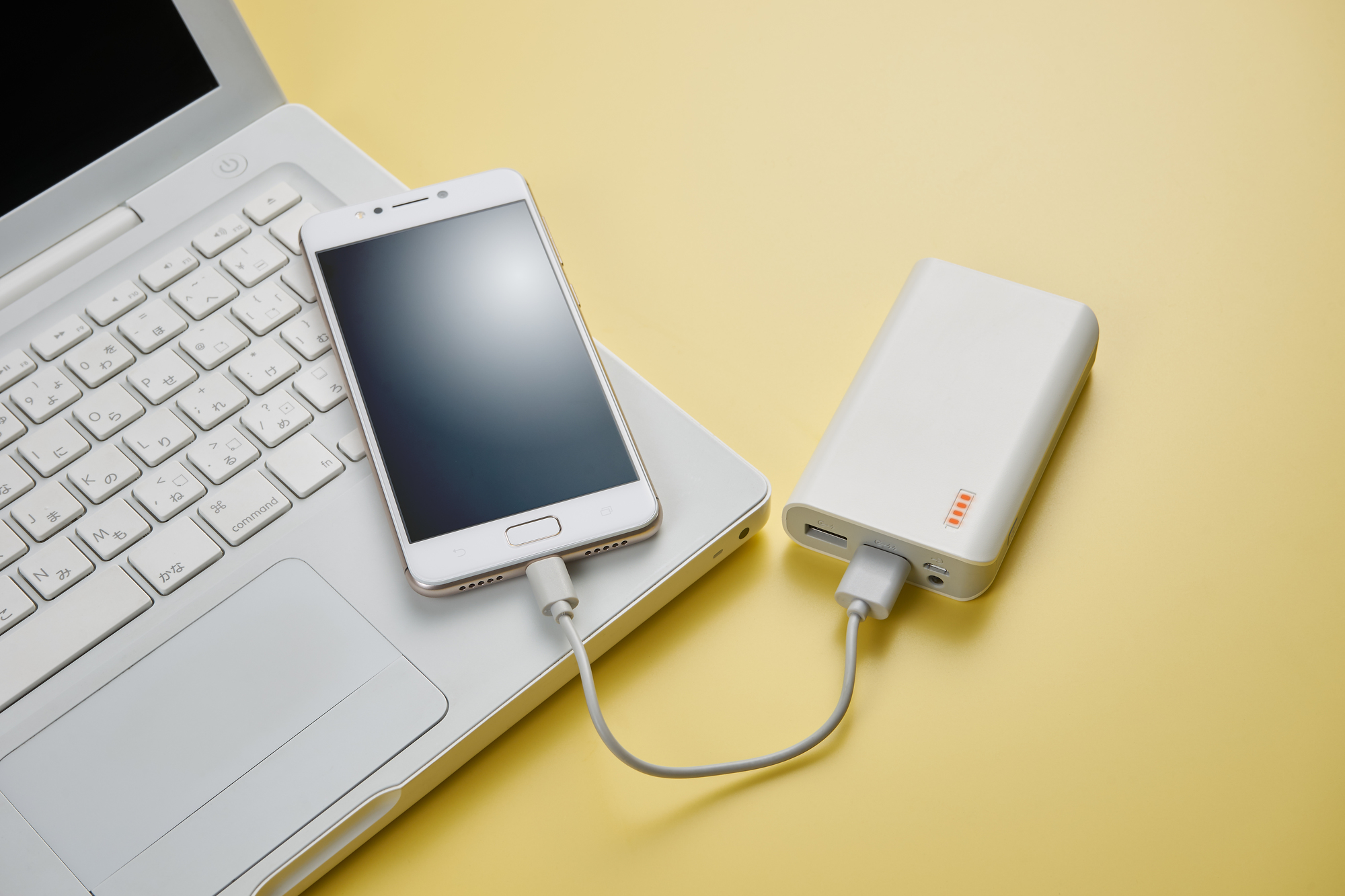
Two responses when it is judged that electrical appliances and materials are not subject to PSE
Well, the problem with it is when the product is found to be not pse after repeated confirmation. From the requester's, I'm lucky because it is not PSE and there is no inspection cost! I think that will come true, but there will be new problems again.
Issued a certificate that is not eligible for PSE
Most business operators will somehow recognize that PSE will be necessary for products that use electricity.
Then, no matter how much you explain that "this electrical appliance is not subject to PSE", you can easily imagine that there will be many cases where you will not be trusted if you are just evading inspection.
In that case, there are times when you are asked to do a PSE test, but as an inspection institution, it will also be a matter of your own credibility, so basically you will not issue a PSE certificate by forcibly inspecting things that are not subject to PSE.
Some undisciplined inspection agencies may do such a thing, but proper inspection agencies will never do such a thing, and inspection agencies that try to issue fake certificates will be skeptical of the contents of the inspection in the first place.
In that case, tell the Japan inspection organization: JET (Institute for Electrical Safety and Environmental Research) the specifications of the electrical appliances and materials you are trying to handle, and get a written reply that it is not subject to PSE.
It is a fairly simple document, but you can still get JET endorsement that it is not eligible for PSE, so I hope that you will use it to promote electrical appliances and materials.
Conduct a request test (self-inspection) on the safety of electrical appliances and materials
If we think again about why PSE exists in the first place, it is to inspect dangerous parts of electrical appliances and materials in order to ensure the safety of the electrical appliances and materials in question. Of course, it costs money, but that's the main premise.
In such a case, it is theoretically not wrong to say that nothing is inspected because it is not subject to PSE, but it is also true that since it is an electrical appliance material, there is a danger in its use.
In short, even if you sell the electrical appliances and materials as they are because they are not eligible for PSE, the distributor will not purchase them. It may be good if it is a trial purchase, but if it is a thing that you do not know whether it is really safe or not, it is natural to be reluctant to purchase in bulk.
As I wrote earlier, of course it depends on the product, but in any case, the more complicated the product, the more it will be tested and the trust level of the business partner will increase if it is subject to PSE, so it will be convenient for the business operator.
In such a case, for example, there is a method of having an inspection institution report on the safety of the product as a commissioned test and receiving a certificate, and for example, with regard to the JET I mentioned earlier, there is also a test called S-JET certification that proves the high safety of the product.
In addition to this S-JET certification, there are also S-JQA certification by JQA (Japan Quality Assurance Organization), S-UL Japan, S-TÜV Rheinland, etc. for a total of four S certifications. I would like to explain these at another time.
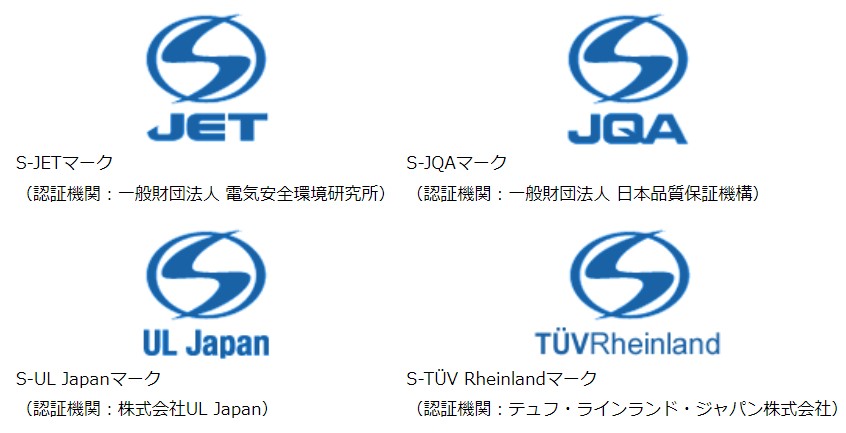
Quote: What does the Electrical Products Certification Council _S mark mean?
However, the latter type of S certification increases the reliability after certification, but on the other hand, the difficulty level is also very high, and the cost is also commensurate, so it is also true that it is difficult to realize unless it is a major manufacturer.
First of all, in the sense of ensuring safety, there is also a method of conducting commissioned tests (safety inspections) with inspection organizations such as overseas.
When importing electrical products, I would like you to work with such a broad perspective, and we would be happy if you could feel free to consult us about unclear points.
It is not known whether the PSE will continue permanently thereafter, so periodic confirmation is required
Finally, I would like to reiterate that the judgment of whether or not a PSE is eligible is not something that will not change permanently. The aforementioned mobile battery is a good example.
It will change as appropriate according to the flow of the times and the evolution of products.
Even if you are not eligible for PSE once, there is a possibility that it will change later, so we recommend that you take a peek at the information of the Ministry of Economy, Trade and Industry once in a while, or consult with an agency company like ours.
We believe that such detailed information collection leads to the prosperity of the company in which we operate.
